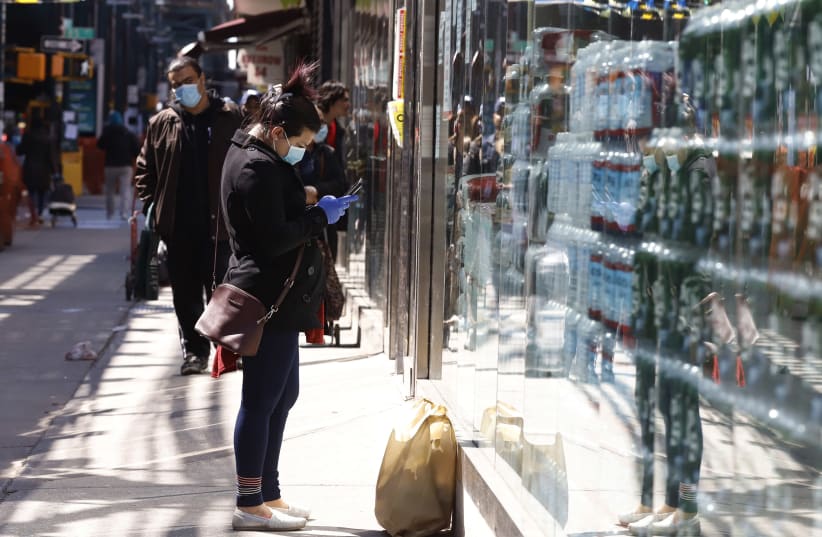The majority of people in the UK are willing to use tracking applications to combat the spread of the coronavirus, a recent study that included surveys during the first and second waves of the pandemic found. In spite of this, the number of those who have downloaded the NHS Test and Trace coronavirus tracking app is not reflected in these numbers - making the tracking app much less effective.
Some 65% of poll respondents expressed willingness to use a mandatory government app and 70% expressed willingness to use a voluntary sign-up app.
Prof. Stephen Lewandowsky, chair in cognitive psychology at the University of Bristol and the lead author of the study, expressed surprise at the study's results.
“Attitudes were surprisingly permissive and this is good news for public health. But there appears to be a significant gap between what people say they’re willing to do and what they actually do, which needs further investigation," said Lewandowsky.
In order for tracking applications to work, a large proportion of the population must use them. British enrollment in the NHS app is around 21 m. people, which is more than 10 m. short of the target number of participants, according to the study.
"Lack of uptake is a big problem because such systems need more than half – 56 per cent – of the general population on board to be effective in helping control a pandemic," said Lewandowsky.
Lewandowsky addressed possible reasons for the discrepancy and expressed the potential for greater efficacy of tracking apps reflected in the study. "Technological barriers, confusion, or simply lack of awareness," are among potential causes Lewandowsky lists.
"But the fact respondents were very receptive and open to such tools should be encouraging and indicates while people don’t want to throw away their privacy, they are willing to make compromises perhaps for the greater good,” Lewandowsky said.
The number of those willing to use tracking applications is similar for mandatory government tracking apps that grant authorities access to tracked information (65% expressed willingness to use) and for voluntary applications that do not grant the government use of the data (70% expressed willingness to use).
When the study introduced a clause that said that all data collected would be erased after two weeks, acceptance levels of both applications rose to 75%. When an additional "opt-out" clause was added, acceptance increased to 85%.
The study also found that respondents were widely receptive of "immunity passports," passports that would be granted to those who have coronavirus antibodies and exempt them from certain regulations. Some 20% of respondents were opposed to these passports, many believing that they were unfair, and 60% of respondents expressed wanting an immunity passport.
"It’s fascinating how people seem increasingly receptive to their personal data being used to inform themselves and others about what they can and can’t do," concluded Lewandowsky.
“As a follow-up, it would be beneficial to know whether people have relaxed their privacy attitudes as an exception due to the emergency situation or if our findings show a wider acceptance of privacy-encroaching technologies, for example continuous monitoring of your power consumption at home or tracking of location by law enforcement authorities.”
